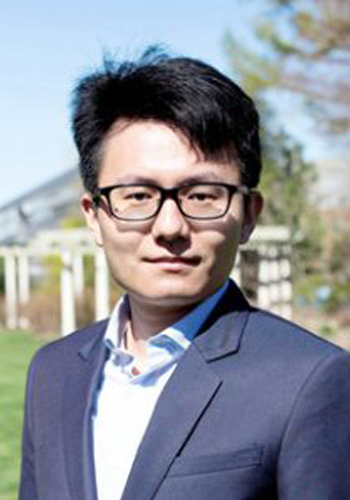Infrastructure Systems
Smart and Resilient Energy Systems
Led by Yufei Tang, Ph.D.

Yufei Tang is an Assistant Professor in the Department of CEECS and a Faculty Fellow of I-SENSE at Florida Atlantic University (FAU), where he is also the director of the Intelligent and Resilient Systems (IRS) Research Group. He received his Ph.D. in Electrical Engineering from the University of Rhode Island (URI) in 2016. His research interests are Machine Intelligence and Cyber-Physical Systems. In particular, he is interested in developing new intelligent algorithms (e.g., deep machine learning, large-scale network data mining) and building efficient and resilient cyber-physical Energy systems (e.g., renewable energy control and monitoring, critical infrastructure systems resilience).
PROJECT
This project focuses on the development of new architectures and associated algorithms for monitoring and controlling renewable energy installations. Validation of the new designs will leverage a unique dataset acquired from marine renewable energy generation systems as part of an ongoing collaboration with the Southeast National Marine Renewable Energy Center [18]. The long-term research plan, of which this REU project is a part, focuses on reducing operation and maintenance costs, while increasing resilience. The intellectual merit of the proposed REU project is in developing innovative control and monitoring algorithms to improve energy system efficiency and resiliency. While in-stream hydrokinetic energy generation will be a focus, multiple renewable energy generation modes will be considered. The project will significantly advance understanding of critical issues related to next-generation marine renewable energy systems and will create new control and prognostic frameworks to address emerging problems in renewable energy generation and operation. The broader impacts of the project lie in the potential to significantly improve the security, efficiency, and sustainability of the nation's power generation infrastructure. In-stream hydrokinetic electricity production, i.e. production from moving currents without the use of dams, offers the potential for up to 14GW from rivers [40], 50GW from tides [30], and 19GW from ocean currents [29]. This combined power potential is equivalent to 18% of total U.S. power production [5, 84]. The project will provide a meaningful research experience for two REU participants each summer. The participants will develop engineering skills related to renewable energy, electrical power, data analytics, and control. Both students will focus on monitoring and control algorithm design, leveraging existing datasets to support system simulation and experimental analysis.